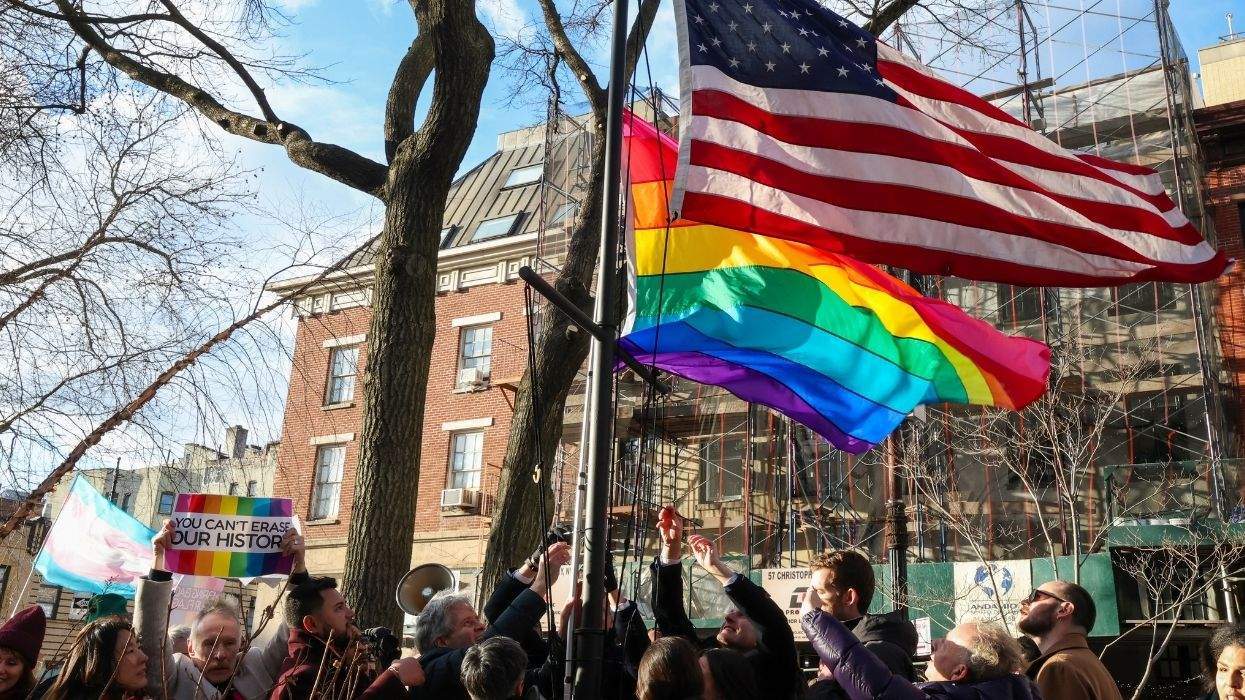An alarming amount of LGBTQ+ seniors are living in poverty — but it doesn't have to be this way.
One in five U.S. households led by people over 50 have no retirement savings, according to a recent report from the Milken Institute and SAGE, and 61 percent of American elders — those ages 65 and older — say that they worry about not having enough financial resources to support themselves in later life.
This fear is felt even more strongly by LGBTQ+ elders, about 40 percent of whom are living below the federal poverty line. Compared to the rest of the population, their poverty rates can be between 20 and 40 percent higher than their heterosexual and cisgender peers.
This is due to several factors, including "lifetime earnings that might be lower, economic discrimination, and lower homeownership rates," says Caitlin MacLean, managing director of innovative finance at the Milken Institute and one of the report authors. LGBTQ+ people are also more likely to be denied loans and to live alone in single-income homes.
"Long-term care is extremely expensive as we age, and 50 percent of the LGBTQ+ population falls into the 'very low income' level determined by area median income, making it very difficult to even afford subsidized housing and care, let alone market-rate options," MacLean tells The Advocate. "This further exacerbates the lack of economic opportunity for LGBTQ+ older adults."
One of the most straightforward ways to address this crisis is to fund affordable, LGBTQ+-affirming elder housing programs, which can be done through social bonds, impact investment funds, or prize funds. Additionally, affirming programming, workforce training, and inclusive design improvements can be added to existing services.
While government incentives may not be available, especially in places with anti-LGBTQ+ laws, MacLean says "even states that have discriminatory policies often have cities that have their own ability to issue debt or build housing or design funding incentives that are at a local level and therefore more flexible."
It's not just state or local governments that can act — MacLean stresses that financial institutions, private investors, and corporations can also take initiative. Even individuals could do something "as simple as volunteering time at housing that already exists for older adults."
"Necessity drives innovation, so we are hopeful that individuals in communities across the country will see the growing need we have for affordable and affirming housing and care for older adults," MacLean says. "We hope that each person can find a way to become a champion for designing, funding or advocating for this type of service and supports."
"Everyone can do something to be a champion for LGBTQ+ older adults," she adds. "Now more than ever, we need people who are willing to step up and stand up for long-term solutions for a healthier, thriving community."
















Charlie Kirk DID say stoning gay people was the 'perfect law' — and these other heinous quotes
These are some of his worst comments about LGBTQ+ people made by Charlie Kirk.